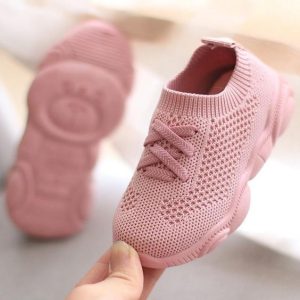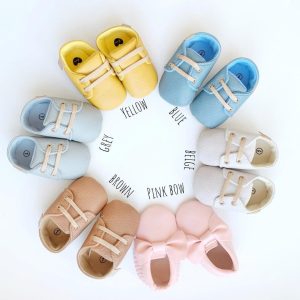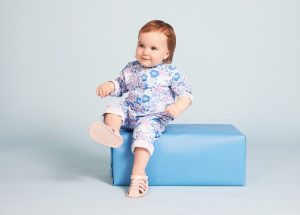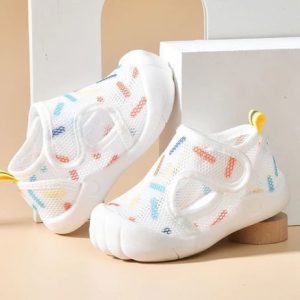Physical Address
304 North Cardinal St.
Dorchester Center, MA 02124
Physical Address
304 North Cardinal St.
Dorchester Center, MA 02124

Tiny toes are adorable, and you might be tempted to rush out and buy your baby their first pair of shoes. But babies don’t actually need shoes until they start walking. In fact, barefoot time is important for healthy foot development.
This article explores the benefits of barefoot time for babies and the right time to introduce shoes.
Bare feet allow babies to feel the world around them with their toes. This sensory experience helps them learn about balance, texture, and proprioception – awareness of their body’s position in space. Here are some specific benefits:
Grasping with their toes helps babies develop the muscles in their feet. Strong foot muscles are important for balance and coordination later on.
Feeling the floor with their bare feet helps babies develop better balance. This is important for learning to walk.
Barefoot babies can wiggle their toes and feet freely, which helps with agility and flexibility.
Once your baby starts walking, shoes can help protect their feet from injuries and the elements. Here are some signs your baby might be ready for shoes:

When choosing a shoe for your walking baby, prioritize comfort and fit. Here are some tips:
Even after your baby starts walking, barefoot time is still important. Here’s why:

If you can, let your baby walk barefoot at home and outdoors on safe surfaces like grass, sand, or carpeted floors. Avoid letting your baby walk barefoot in places where there could be broken glass, sharp objects, or extreme temperatures.
Shoes aren’t necessary for babies until they start walking. In fact, barefoot time is important for healthy foot development. Once your baby starts walking, choose shoes that are soft, flexible, and supportive. Even after walking, barefoot time is still beneficial for your baby’s development.
Play is essential for a baby’s physical and mental development. Here’s why:

There are many ways to encourage play for your baby. Here are some ideas:
Shoes aren’t necessary for babies until they start walking. Barefoot time is important for healthy foot development and sensory exploration. When your baby starts walking, choose shoes that prioritize comfort and proper fit. Remember, playtime is essential for your baby’s development. By providing opportunities for safe and stimulating play, you can help your baby learn and grow.

While shoes aren’t essential for pre-walkers, socks can be a great choice to keep little toes warm and comfy. Here are some things to consider when choosing socks for your baby:
Once your baby starts cruising and walking, you might consider shoes for:
Here are some additional tips for choosing shoes for walking babies:

Shoes aren’t a necessity for babies until they start walking. Barefoot time is important for healthy foot development. When choosing shoes for your walking baby, prioritize comfort, fit, and protection. Remember, playtime and exploration are essential for your baby’s development. Let your little one roam free and experience the world with their toes!